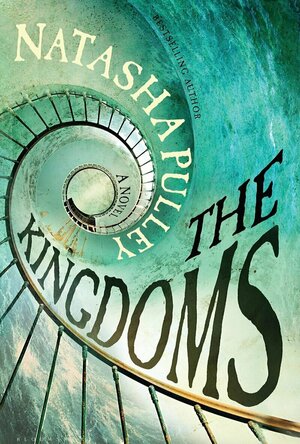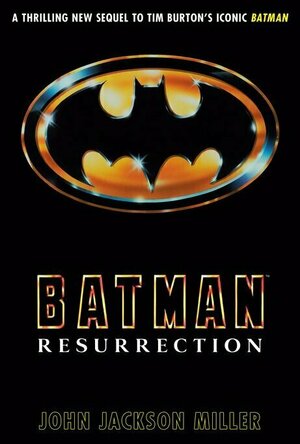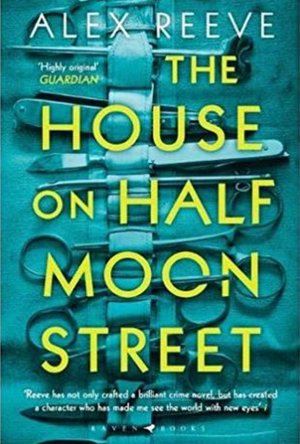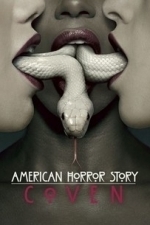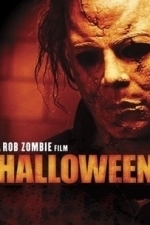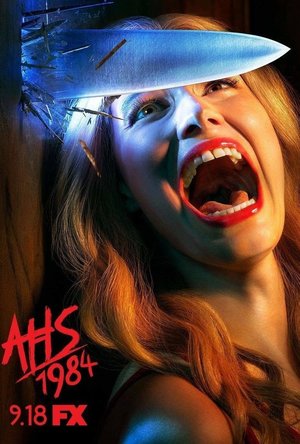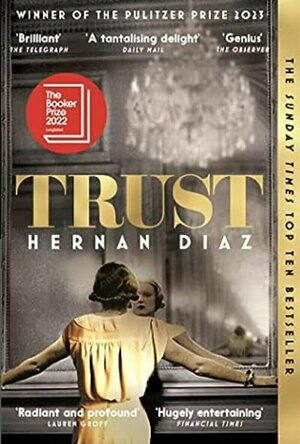Search
ClareR (6096 KP) rated The Kingdoms in Books
Mar 6, 2022
I’m writing this review two weeks after finishing ‘The Kingdoms’, and I realise that I haven’t actually stopped thinking about it (off and on, obviously. I’m not THAT obsessed!). It’s one of those books that has really caught my imagination, and I’m certain that I’ll have to read it again at some point.
Basically (and I warn you: there’s nothing basic about this storyline!), Joe Tournier finds himself at a London train station, and realises that he doesn’t know how he got there, or who he is. A kind stranger takes him to the hospital where he’s diagnosed with amnesia. After a week at an asylum, his owner and his wife come to claim him. His French owner. He is a slave in Londres, which is occupied by the French after they won the Napoleonic Wars. But none of this feels right to him.
A month or so later, he receives a postcard written in illegal English, from a lighthouse in rebel Scotland - written 100 years ago. After gaining his freedom as a slave, Joe becomes an engineer, and is sent to the same lighthouse to make repairs. And that’s all I’ll say, because I really don’t want to spoil the story. I will say that there’s some jumping around in time, and it shows that if you change a small thing in the past, there can be huge ramifications in the future.
I loved the characters, the plot, the setting - just everything about it really appealed to me. I can’t say as I’ve read many books set mainly on boats, naval or otherwise. The rules and the running of the ships were really interesting, and the sea battles were gripping.
It’s a fabulous book, and I’d most definitely recommend it. Thanks to The Pigeonhole for the serialisation!
Basically (and I warn you: there’s nothing basic about this storyline!), Joe Tournier finds himself at a London train station, and realises that he doesn’t know how he got there, or who he is. A kind stranger takes him to the hospital where he’s diagnosed with amnesia. After a week at an asylum, his owner and his wife come to claim him. His French owner. He is a slave in Londres, which is occupied by the French after they won the Napoleonic Wars. But none of this feels right to him.
A month or so later, he receives a postcard written in illegal English, from a lighthouse in rebel Scotland - written 100 years ago. After gaining his freedom as a slave, Joe becomes an engineer, and is sent to the same lighthouse to make repairs. And that’s all I’ll say, because I really don’t want to spoil the story. I will say that there’s some jumping around in time, and it shows that if you change a small thing in the past, there can be huge ramifications in the future.
I loved the characters, the plot, the setting - just everything about it really appealed to me. I can’t say as I’ve read many books set mainly on boats, naval or otherwise. The rules and the running of the ships were really interesting, and the sea battles were gripping.
It’s a fabulous book, and I’d most definitely recommend it. Thanks to The Pigeonhole for the serialisation!
David McK (3721 KP) rated Batman: Resurrection in Books
Apr 6, 2025
Michael Keaton's version of The Caped Crusader seems to have undergone something of a renaissance in recent years, with the publication of the Batman '89 graphic novels, and with his reappearance in the otherwise-disappointing movie 'The Flash' from 2023.
So roughly 35 or so years after the original 'Batman' film - which reimagined him from the camp flamboyant character of the '60s TV series to something altogether more serious - we get this novel, set between the events of 'Batman' And 'Batman Returns' and so set in the very-gothic Tim Burton version of Gotham instead of the more-grounded Christopher Nolan version: a Gotham that is still reeling from the after-effects of The Jokers gas attack towards the end of that film.
With said Gas, and the chemical attack earlier in the film in the form of Smylex, kickstarting the plot here by providing the reason behind the creation of what, to me, is one of the lesser-known of Batman's Rogue Gallery - a character that, without giving too much away, I only really first became aware of through playing the Arkham Asylum series of videogames, where he has a larger role in one of the later entries (and who has yet, to my knowledge, make it to the movies - ironic, when you consider his profession).
Him, and the puppeteer pulling his strings - both of whom I have encountered in said video games; neither of which have played a larger role (any?) in any of the live-action Batman films.
As an 'in-between' novel, there's also hints of things to come with cameo's from certain characters who will later play a larger role in Batman Returns, and by one character in particular who the upcoming sequel to this is going to centre on.
So roughly 35 or so years after the original 'Batman' film - which reimagined him from the camp flamboyant character of the '60s TV series to something altogether more serious - we get this novel, set between the events of 'Batman' And 'Batman Returns' and so set in the very-gothic Tim Burton version of Gotham instead of the more-grounded Christopher Nolan version: a Gotham that is still reeling from the after-effects of The Jokers gas attack towards the end of that film.
With said Gas, and the chemical attack earlier in the film in the form of Smylex, kickstarting the plot here by providing the reason behind the creation of what, to me, is one of the lesser-known of Batman's Rogue Gallery - a character that, without giving too much away, I only really first became aware of through playing the Arkham Asylum series of videogames, where he has a larger role in one of the later entries (and who has yet, to my knowledge, make it to the movies - ironic, when you consider his profession).
Him, and the puppeteer pulling his strings - both of whom I have encountered in said video games; neither of which have played a larger role (any?) in any of the live-action Batman films.
As an 'in-between' novel, there's also hints of things to come with cameo's from certain characters who will later play a larger role in Batman Returns, and by one character in particular who the upcoming sequel to this is going to centre on.
ClareR (6096 KP) rated The House on Half Moon Street in Books
May 3, 2018 (Updated May 3, 2018)
A good period murder mystery.
Leo works as a coroners assistant in a busy Victorian London hospital. Leo lived the first 15 years of his life as Charlotte, and ran away so that he could live as Leo: this is in time where if he were to be discovered, he would be sent to an insane asylum.
Leo falls in love with the prostitute (Maria) that he has been seeing once a week for two years, and arranges to meet her at the theatre for what he hopes will be the first of many dates. He wants to build a life with her. However, she doesn't show up, and he, bitterly disappointed, goes home. When he arrives at work the following day, he discovers the first body on the slab is that of Maria. Of course, he is the primary suspect. So Leo starts his own investigation to try and discover who the murderer is.
Leo is a likeable, yet vulnerable character. He clearly feels very deeply about Maria. The friends and acquaintances he makes in the course of his investigations are personable and try to help him as well as themselves (to be honest, it's hard to see whether they are really his friends at all - they all live hard lives, and just want to get along without causing any trouble to themselves or their families). By the same token, the villains are unlikeable, villainous and uncaring about anything other than what they can get out of people - in this case, they make their money out of women, specifically prostitution.
I really enjoyed this. I didn't think I would. As soon as I read that Leo was transgender, I thought that it would be an attempt at Tipping the Velvet. It's clearly not. I believe this is the first in a new series, and I will be looking out for the next one!
Many thanks to The Pigeonhole and the publisher for a copy of the book!
Leo falls in love with the prostitute (Maria) that he has been seeing once a week for two years, and arranges to meet her at the theatre for what he hopes will be the first of many dates. He wants to build a life with her. However, she doesn't show up, and he, bitterly disappointed, goes home. When he arrives at work the following day, he discovers the first body on the slab is that of Maria. Of course, he is the primary suspect. So Leo starts his own investigation to try and discover who the murderer is.
Leo is a likeable, yet vulnerable character. He clearly feels very deeply about Maria. The friends and acquaintances he makes in the course of his investigations are personable and try to help him as well as themselves (to be honest, it's hard to see whether they are really his friends at all - they all live hard lives, and just want to get along without causing any trouble to themselves or their families). By the same token, the villains are unlikeable, villainous and uncaring about anything other than what they can get out of people - in this case, they make their money out of women, specifically prostitution.
I really enjoyed this. I didn't think I would. As soon as I read that Leo was transgender, I thought that it would be an attempt at Tipping the Velvet. It's clearly not. I believe this is the first in a new series, and I will be looking out for the next one!
Many thanks to The Pigeonhole and the publisher for a copy of the book!
LeftSideCut (3776 KP) rated American Horror Story - Season 3 in TV
Nov 2, 2019 (Updated Nov 2, 2019)
Season 3 of AHS is a firm fan favourite - subtitled 'Coven', it centres around a school for young witches to discover and nurture their powers, all whilst preparing for trials to determine who will become the next Supreme witch.
Front and centre once again are Sarah Paulson and Jessica Lange. I enjoy Sarah Paulson in pretty much every season of AHS, and Coven is no different.
Her character, Cordelia Foxx, is her most likable character to date.
Jessica Lange plays her mother, Fiona Goode, and I struggled to get on board with her character. Unlike her character from Asylum, there's just nothing redeemable about her. Jessica Lange is still a powerhouse though...
It's nice to see Frances Conroy also.
The rest of the Coven are made up younger witches, and this is where the season trips up for me. I have nothing against any of the actors, but Coven very much feels like a high school drama for a good chunk of the runtime, and after the darker first two seasons, it's a bit jarring. I feel like a lighter touch can definitely the work (the currently running '1984' has been pretty fun for example), but first time round here, it didn't hit the right notes for me, and I grew quickly tired and bored of the constant high school bickering between characters.
Elsewhere, we're introduced to Voodoo magic, with characters such as the mysterious Papa Legba, Marie Laveau (Angela Bassett), and Madame Delphine LaLaurie, played by Kathy Bates.
Her first role for AHS is possibly her best and she is definitely the season highlight for me.
The Voodoo side of Coven was much more appealing and entertaining.
There's still a bucket load of very well done and gratuitous violence and gore on display, and the music score is pretty good.
Coven is certainly one of my least favorite seasons of AHS, but it's by no means bad, and it's still great to have a horror show this entertaining on prime time television.
Front and centre once again are Sarah Paulson and Jessica Lange. I enjoy Sarah Paulson in pretty much every season of AHS, and Coven is no different.
Her character, Cordelia Foxx, is her most likable character to date.
Jessica Lange plays her mother, Fiona Goode, and I struggled to get on board with her character. Unlike her character from Asylum, there's just nothing redeemable about her. Jessica Lange is still a powerhouse though...
It's nice to see Frances Conroy also.
The rest of the Coven are made up younger witches, and this is where the season trips up for me. I have nothing against any of the actors, but Coven very much feels like a high school drama for a good chunk of the runtime, and after the darker first two seasons, it's a bit jarring. I feel like a lighter touch can definitely the work (the currently running '1984' has been pretty fun for example), but first time round here, it didn't hit the right notes for me, and I grew quickly tired and bored of the constant high school bickering between characters.
Elsewhere, we're introduced to Voodoo magic, with characters such as the mysterious Papa Legba, Marie Laveau (Angela Bassett), and Madame Delphine LaLaurie, played by Kathy Bates.
Her first role for AHS is possibly her best and she is definitely the season highlight for me.
The Voodoo side of Coven was much more appealing and entertaining.
There's still a bucket load of very well done and gratuitous violence and gore on display, and the music score is pretty good.
Coven is certainly one of my least favorite seasons of AHS, but it's by no means bad, and it's still great to have a horror show this entertaining on prime time television.
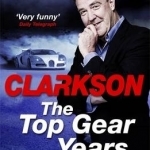
The Top Gear Years
Book
The Top Gear Years brings together Jeremy Clarkson's collected magazine columns for the first time....
KyleQ (267 KP) rated Halloween (2007) in Movies
Jul 20, 2020
Intense and excessive
Before watching this I had become a fan of both House of 1,000 Corpses and The Devil's Rejects, so I did appreciate Rob Zombie as a filmmaker. But it still seemed like a strange idea to have him direct the remake of Halloween.
This remake is 2 hours long, it's mostly stretched to that length due to the scenes involving 10-year-old Michael.
Daeg Faerch plays the young Mikey, and does well, he's creepy and disturbing. Rob's wife Sheri Moon Zombie of course has a role, here as Mikey's mom, she's fine here as the role fits her well. The problem is everyone else, William Forsythe plays Mike's stepdad who happens to be a disgusting excuse for a human being, as is the bully played by Daryl Sabara. The movie then shifts to events at the asylum. Malcolm Mcdowell plays Dr. Sam Loomis. Mcdowell is a good actor, and he gives a pretty good performance here. But he still pales in comparison to the great Donald Pleasence. The movie than movies to 15-years later.
Scout Taylor Compton plays Laurie Strode, she does good, but I was disappointed that she was introduced making a sex joke. Rob couldn't even let the nerdy final girl be sweet and innocent. Needless to say, others are worse.
The movie has LOTS of profanity which honestly drags down any attempts at actually making characters likable. The sex and nudity have also been ramped up.
The violence is definitely brutal, but that's Zombie's style, I felt that Michael was quite terrifying here. Tyler Mane plays Michael, and his 7-foot tall stature is so intimidating.
Overall, Rob Zombie does a good job at developing the story of Michael Myers, and at making some really intense and brutal death scenes. But he does so at the expense of having likable characters and good dialog. I still like it, but I can understand why others wouldn't.
This remake is 2 hours long, it's mostly stretched to that length due to the scenes involving 10-year-old Michael.
Daeg Faerch plays the young Mikey, and does well, he's creepy and disturbing. Rob's wife Sheri Moon Zombie of course has a role, here as Mikey's mom, she's fine here as the role fits her well. The problem is everyone else, William Forsythe plays Mike's stepdad who happens to be a disgusting excuse for a human being, as is the bully played by Daryl Sabara. The movie then shifts to events at the asylum. Malcolm Mcdowell plays Dr. Sam Loomis. Mcdowell is a good actor, and he gives a pretty good performance here. But he still pales in comparison to the great Donald Pleasence. The movie than movies to 15-years later.
Scout Taylor Compton plays Laurie Strode, she does good, but I was disappointed that she was introduced making a sex joke. Rob couldn't even let the nerdy final girl be sweet and innocent. Needless to say, others are worse.
The movie has LOTS of profanity which honestly drags down any attempts at actually making characters likable. The sex and nudity have also been ramped up.
The violence is definitely brutal, but that's Zombie's style, I felt that Michael was quite terrifying here. Tyler Mane plays Michael, and his 7-foot tall stature is so intimidating.
Overall, Rob Zombie does a good job at developing the story of Michael Myers, and at making some really intense and brutal death scenes. But he does so at the expense of having likable characters and good dialog. I still like it, but I can understand why others wouldn't.
LeftSideCut (3776 KP) rated American Horror Story - Season 9 in TV
May 10, 2020
The ninth season of AHS, subtitled "1984" is definitely up there in terms of silliness. However, where this has been an issue for me with a few previous seasons, this time around it's a huge strong point.
1984 is one big homage to 80s slasher films, in particular Friday the 13th. If you've read my any of my reviews before, you will know that I bloody love a slasher, even the shitty ones, so this premise was always going to be a winner for me.
A big change this time around is the absence of big AHS names. No Sarah Paulson, no Evan Peters, no Kathy Bates. Their presence is certainly missed in some sort of capacity, but the cast we have do a solid job at carrying the season. Emma Roberts and Billie Lourd take centre stage here, and are both great. We also see some familiar faces in Leslie Grossman, Cody Fern, John Carroll Lynch, Finn Wittrock, Leslie Jordan, Lily Rabe, and Dylan McDermott, so it still has that signature AHS feel. A couple of newcomers are introduced as well - Matthew Morrison and Gus Kenworthy are both hilarious. Zach Villa plays real life serial killer Richard Ramirez (who briefly appeared all the way back in Hotel) and the guy is genuinely menacing. If another season of Twin Peaks ever gets made - he's a dead ringer for Killer Bob.
One of the highlights is "villain" Mr. Jingles (John Carroll Lynch). He's such a finely crafted character, that he honestly deserves to stand next to the Jason and Freddy's of the slasher world.
The story is pretty fun. Mixing 80s campy horror with more familiar AHS elements (such as ghosts not being able to leave the place they died etc) and is pretty engaging for the most part. It gets a little convoluted near the end, and lacks the depth that seasons such as Asylum and Roanoke gave, but it's forgiveable considering the quality of everything else.
As a final thought - the synthwave version of the theme tune is fucking awesome.
1984 is one big homage to 80s slasher films, in particular Friday the 13th. If you've read my any of my reviews before, you will know that I bloody love a slasher, even the shitty ones, so this premise was always going to be a winner for me.
A big change this time around is the absence of big AHS names. No Sarah Paulson, no Evan Peters, no Kathy Bates. Their presence is certainly missed in some sort of capacity, but the cast we have do a solid job at carrying the season. Emma Roberts and Billie Lourd take centre stage here, and are both great. We also see some familiar faces in Leslie Grossman, Cody Fern, John Carroll Lynch, Finn Wittrock, Leslie Jordan, Lily Rabe, and Dylan McDermott, so it still has that signature AHS feel. A couple of newcomers are introduced as well - Matthew Morrison and Gus Kenworthy are both hilarious. Zach Villa plays real life serial killer Richard Ramirez (who briefly appeared all the way back in Hotel) and the guy is genuinely menacing. If another season of Twin Peaks ever gets made - he's a dead ringer for Killer Bob.
One of the highlights is "villain" Mr. Jingles (John Carroll Lynch). He's such a finely crafted character, that he honestly deserves to stand next to the Jason and Freddy's of the slasher world.
The story is pretty fun. Mixing 80s campy horror with more familiar AHS elements (such as ghosts not being able to leave the place they died etc) and is pretty engaging for the most part. It gets a little convoluted near the end, and lacks the depth that seasons such as Asylum and Roanoke gave, but it's forgiveable considering the quality of everything else.
As a final thought - the synthwave version of the theme tune is fucking awesome.
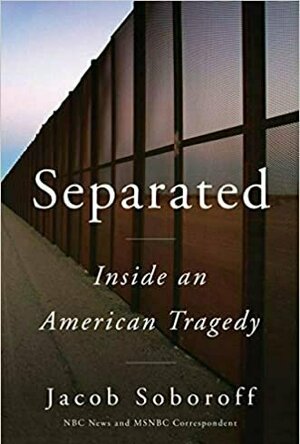
Seperated
Book
THE NEW YORK TIMES BESTSELLER The award-winning NBC News correspondent lays bare the full truth...
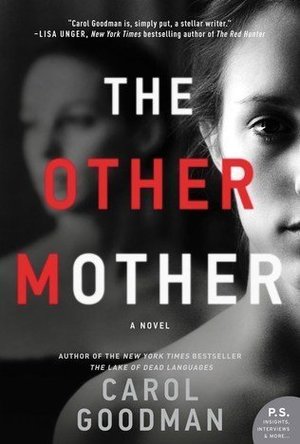
The Other Mother
Book
“An atmospheric and harrowing tale, richly literary in complexity but ripe with all the crazed...
mystery thriller
It took me a bit to get into Trust, but I’m glad I persevered, and that I went back and read the synopsis!
Trust is made up of four narratives about the same man. The first is a book written by Harold Vanner called ‘Bonds’. It tells the story of tycoon Benjamin Rask in the 1920’s and his role in the 1929 crash. It’s also about his wife, Helen, her love of the Arts, how she descends into mental illness and dies in a European asylum.
The second story is comprised of the notes that Andrew Revel, a Wall Street banker and tycoon, makes in order to write his autobiography. His wife Mildred also features, and her death from cancer, also in a treatment centre in Europe.
The third is written by Ida Partenza (my favourite part), where she is looking back on the time that she worked for Revel, ghost-writing his biography. She clearly intensely dislikes her employer, mainly because he lies throughout his storytelling, and is quite upfront about doing it. He’s also aware of her father being a political refugee from Italy, an anarchist, and there’s an underlying menace.
And the final part are the notes and diaries that Ida finds in the ‘present’ day written by Mildred, leading up to her death. They reveal the secrets that her husband would rather not know. Why these are still in a library that can be accessed by the public isn’t known, but the handwriting is pretty indecipherable, so that may well be the reason.
Obviously the first story is about the man in the last three, and we are asked to trust that the man who wrote the first is lying - and therefore trust that Andrew Revel is telling the truth. Clearly he isn’t. His wife’s notes back that up. Revel is a manipulative man, who doesn’t hesitate to ruin other people’s lives in order to protect his reputation.
I read this whole novel with horrified fascination. It’s a good one!
Trust is made up of four narratives about the same man. The first is a book written by Harold Vanner called ‘Bonds’. It tells the story of tycoon Benjamin Rask in the 1920’s and his role in the 1929 crash. It’s also about his wife, Helen, her love of the Arts, how she descends into mental illness and dies in a European asylum.
The second story is comprised of the notes that Andrew Revel, a Wall Street banker and tycoon, makes in order to write his autobiography. His wife Mildred also features, and her death from cancer, also in a treatment centre in Europe.
The third is written by Ida Partenza (my favourite part), where she is looking back on the time that she worked for Revel, ghost-writing his biography. She clearly intensely dislikes her employer, mainly because he lies throughout his storytelling, and is quite upfront about doing it. He’s also aware of her father being a political refugee from Italy, an anarchist, and there’s an underlying menace.
And the final part are the notes and diaries that Ida finds in the ‘present’ day written by Mildred, leading up to her death. They reveal the secrets that her husband would rather not know. Why these are still in a library that can be accessed by the public isn’t known, but the handwriting is pretty indecipherable, so that may well be the reason.
Obviously the first story is about the man in the last three, and we are asked to trust that the man who wrote the first is lying - and therefore trust that Andrew Revel is telling the truth. Clearly he isn’t. His wife’s notes back that up. Revel is a manipulative man, who doesn’t hesitate to ruin other people’s lives in order to protect his reputation.
I read this whole novel with horrified fascination. It’s a good one!
